IN TERMS of ability, longevity, versatility, body of work and global impact, Asha Bhosle is regarded by most as India’s greatest singer of all time.
Born on September 8, 1933, the most recorded artist in history changed the face of commercial music in India and entertained countless people across different generations, in a career that has lasted more than 70 years. She has also inspired singers and musicians, been part of formidable moments in history and performed at major venues around the world. The iconic singer celebrates her 90th birthday this week and to mark the landmark occasion, Eastern Eye decided to present 90 magic moments from her phenomenal life.
- The legendary singer was born as Asha Mangeshkar on September 8, 1933. The nine-year-old started working as a singer and actress with her elder sister Lata Mangeshkar to support the family soon after their father died.
- The 10-year-old Asha sang her first film song Chala Chala Nav Bala for the Marathi film Majha Bal (1943).
- She made her Hindi film debut with the song Saawan Aaya for the film Chunariya (1948), as a teenager.
- Asha delivered her first solo Hindi film song for the movie Raat Ki Raani (1949).
-
She inspiringly became a single working mother at a young age after separating from her much older husband, to provide for her children. Asha had said: “After my marriage ended, I saw a lot of poverty. I raised three children all by myself. I would get up early, do household chores and leave home by 7am for work.” - By walking away from an abusive marriage, she showed great inner strength and became an early role model for single mothers.
- During her early days of struggle in the 1950’s Asha only got songs top singers like Geeta Dutt, Shamshad Begum and Lata Mangeshkar turned down, but used that to prove her ability.
- She got recognition after singing for the film Sangdil (1952).
- The singer teamed up with future composing legend Khayyam for songs in cult classic Footpath (1953). They would team up decades later for the Umrao Jaan (1981) songs.
- Bimal Roy was the first major filmmaker to take a chance on Asha by getting her to sing for his award-winning film Parineeta (1953).
- She gained further recognition for her songs in cult classic Boot Polish (1954). Her duet with Mohammed Rafi (above), Nanhe Munne Bachcha became a huge hit.
- She sang the patriotic song Sabarmati Ke Sant, which was dedicated to Mahatma Gandhi and helped the film Jagriti (1954) win a coveted National Award.
- The singer had a star-making moment with CID (1956) song O Leke Pehla Pehla Pyar (1956) and formed a dream team with ace composer OP Nayyar.
- Her popular song Eena Meena Deeka from Aasha (1957) is one of Hindi cinema’s first rock ‘n’ roll numbers. It shows no one could do upbeat numbers in the golden era of Bollywood quite like Asha.
- Blockbuster hit Naya Daur (1957) established Asha as a force to be reckoned with after she delivered hit songs like Uden Jab Jab Zulfen Teri.
- Songs from path-breaking rock ’n’ roll classic Tumsa Nahin Dekha(1957) further established the singer. Like Naya Daur, OP Nayar brought out the best in her.
- Many top music producers refused to work with Asha out of loyalty to her sister Lata Mangeshkar, who she was estranged from at the time, but it did not stop the singer from succeeding.
- Asha sang her first Bengali songs in 1958 under the banner of HMV.
- She continued the dream run of soundtracks with OP Nayyar (above) by singing unforgettable classics in Howrah Bridge (1958), including Aaiye Meherbaan.
- The film Phagun (1958) was panned by critics but became a huge hit thanks to the soundtrack, which has Asha singing every song, including the iconic duet Ek Pardesi Mera Dil Le Gaya.
- Asha’s hit qawwali inspired songs in Barsaat Ki Raat (1960) showed another dimension of her immense talent.
- She skillfully delivered songs for the classic film Chaudhvin Ka Chand (1960) after established singer Geeta Dutt backed out.
- Asha dominated the soundtrack of all-time classic Sahib Bibi Aur Ghulam (1962).
- Asha won the 1962 Maharashtra government best singer award for the Marathi film, Manini.
- She helped power Phir Wohi Dil Laya Hoon (1963) to big success with hit songs.
- Her Kashmir Ki Kali (1964) songs became massively popular.
- She dominated the soundtrack of the pathbreaking film Phool Aur Patthar (1966).
- Asha won her first Filmfare best female playback award for Garibon Ki Suno from Dus Lakh (1966).
- She collaborated with ace composer Madan Mohan for the iconic song Jhumka Gira Re from Mera Saaya (1966).
- Asha teamed up with RD Burman (above) for smash hit Teesri Manzil (1966) soundtrack. The game-changer would become the beginning of one of Bollywood’s greatest partnerships.
- Her song Yako Eno from Kannada film Yako Yeno Seraga Nillavaldu (1967) was a big hit.
- Asha won her second Filmfare best female playback award for Parde Men Rahne Do from Shikar (1968).
- Asha sang the hit song He Dhol Dhamakya for one of the first Gujarati colour films Liludi Dharati (1968).
- The singer won her third Filmfare best female playback award for the iconic song Piya Tu Ab To Aja from Caravan (1971).
- At a time when very little independent music was released away from cinema, she teamed up with composer Jaidev for a 1971 album of devotional songs and ghazals titled An Unforgettable Treat. Later when Jaidev died in 1987, she released a compilation album of lesser-known songs he had composed.
- She sang a version of Zindagi Ek Safar Hai from Andaz (1971), which was the most popular song of that year on radio show Binaca Geetmala.
- Asha won another Filmfare best female playback award for the iconic song Dum Maro Dum from Haré Rama Haré Krishna (1971), which was the most popular song of that year on Binaca Geetmala.
- It was three Filmfare best female playback awards in a row for Asha as she won for the song Hone Lagi Hai Raat from Naina (1973).
- The singer made it a fabulous four Filmfare best female playback awards in a row for the song Chain Se Ham Ko Kabhi from Pran Jaye Per Vachan Na Jaye (1974). It was her sixth trophy overall.
- The acclaimed singer has seven Filmfare best female playback awards out of 18 nominations. That number would have been higher, but after receiving the award in 1979, Bhosle emulated her elder sister Lata Mangeshkar and requested that her name should not be considered for further nominations.
- She was later given a special Filmfare award for Rangeela in 1996 and the Filmfare lifetime achievement award in 2001.
- In 1979, Asha delivered a stunning concert (above) at the Royal Albert Hall in London, which has been made available as an LP. She would return to the iconic venue for shows in subsequent decades.
- Her songs for the iconic film Umrao Jaan (1981), including Dil Cheez Kya Hai and In Aankhon Ki Masti Ke became legendary and earned her a National Award.
- She teamed up with legendary singer Ghulam Ali for the iconic 1983 album Meraj E Ghazal, which was digitally re-released decades later.
- The versatile singer delivered many private albums away from Bollywood long before it was popular to do so. A notable one was the pathbreaking 1987 album Dil Padosi Hai, which saw her team up with her music director husband RD Burman and ace lyricist Gulzar.
- Asha discovered Adnan Sami. She first spotted the talent of the chart-topping singer, songwriter and musician when he was just 10 years old.
- Adnan Sami later collaborated with Asha on his star-making album Kabhi To Nazar Milao. Talking about Bhosle, Sami said: “She is like a mother to me. As a singer I think she is one of the most phenomenal artists India has ever witnessed with the ability to make any genre her own.”
- Asha won another National Award for the song Mera Kuchh Saamaan from Ijaazat(1987).
- Asha’s many international collaborations include the 1991 song Bow Down Mister with Boy George.
- To mark her 60th birthday, EMI India released the albums Bala Main Bairagan Hoongi(devotional songs), The Golden Collection: Memorable Ghazals (non-film ghazals), and The Golden Collection: The Ever Versatile Asha Bhosle (44 popular film songs)
- The brilliance of Bhosle on the Rangeela (1994) soundtrack helped AR Rahman gain global fame. They would team up for subsequent film soundtracks like the Oscar nominated Lagaan (2001).
- Asha became the first Indian singer to get a Grammy award nomination, for Legacy, a 1996 album with Ustad Ali Akbar Khan.
- She released the album Rahul & I Personal Memories, which has remixes of her late husband RD Burman’s songs, including a collaboration with Apache Indian, which he described as the most precious moment of his career.
- British group Cornershop released chart-topping song Brimful Of Asha in 1997. Their track dedicated to the Bollywood great was a huge worldwide success.
- In 1997, she teamed up with Lesle Lewis for the hit pop album Janam Samjha Karo, which won multiple honours including an MTV award.
- Asha collaborated with nineties boyband Code Red for the English language song We Can Make It.
- She teamed up with legendary pop producer Biddu for the album Asha Once More, which features stunning remixes of her greatest hits.
- Asha sang the important song Nee Partha Paravai for the Tamil version of the political film Hey Ram (2000). She also sang Janmon Ki Jwala in the Hindi version.
- The Indian government gave her their highest cinematic honour, the Dadasaheb Phalke Award for 2000.
- In 2001 Nelly Furtado’s single I’m Like a Bird included a Nellie vs. Asha Remix created by Digital Cutup Lounge.
- She turned music composer with the 2002 eight-track album Aap Ki Asha.
- In October 2002, she performed a charity concert in London for Help the Aged to raise funds for the elder
- In 2002, the legendary singer received a BBC Lifetime Achievement Award, which was presented to her by then UK prime minister Tony Blair.
- Electronic music duo 1 Giant Leap brought together REM lead singer Michael Stipe and Asha for the song The Way You Dream, which featured on a star-studded album filled with international artists.
- In 2003, legendary British singer Sarah Brightmansampled her song Dil Cheez Kya Hai on her album Harem, for the song You Take My Breath Away.
- In 2005 Asha released a self-titled album as a tribute to ghazal maestros Mehdi Hassan, Ghulam Ali, Farida Khanumand Jagjit Singh, which included their respective greatest hits like Aaj Jaane Ki Zid Na Karo and Chupke Chupke.
- International band The Black Eyed Peas sampled her 1970s film songs Ae Naujawan Sab Kuchh Yahan and Yeh Mera Dil Pyaar Ka Diwana in their 2005 hit single Don’t Phunk with My Heart.
- In 2005 American string group Kronos Quartet teamed up with Asha Bhosle to re-record songs composed by her late husband RD Burman. Their subsequent album You’ve Stole My Heart: Songs From RD Burman’s Bollywood received great global acclaim and a 2006 Grammy Award nomination in the best contemporary world music album category.
- She recorded the 2006 album Asha & Friends, singing duets with celebrities including Sanjay Dutt, Urmila Matondkar and Brett Lee.
- She released the album Precious Platinum to great acclaim in 2008.
- Asha received a Padma Vibhushan in 2008, which is India’s second highest civilian award.
- The singer was given an IIFA Lifetime Achievement Award in 2011 at a ceremony in Toronto, Canada.
- Asha made her full-fledged lead acting debut in 2013 drama Mai (above), where she beautifully portrayed a mother suffering from Alzheimer’s disease, who is abandoned by her children.
- The singer featured as a judge on popular musical reality TV series including Sur Kshetra, Indian Idol and Sa Re Ga Ma Pa.
- In 2014, Asha honoured her late husband RD Burman’s 75th birth anniversary with the album Pancham Tumi Kothay, where she sang eight songs previously composed by him in Bengali.
- She sang the song Dil Lagane Ko Dil Jab for a special International Women’s Day album in 2014.
- The incredible icon topped Eastern Eye’s definitive list of the greatest Bollywood playback singers of all time in 2015 and received great media coverage. She proudly shared the achievement on social media.
- In 2016, she recorded the album 82, which features six ghazal of Marathi poet Suresh Bhat, mixed with influences that include pop, reggae, blues and rock.
- The legendary singer used her immense culinary skills to successfully open restaurants in Dubai and the UK. She personally trains the chefs to prepare good food. In 2021, Hollywood superstar Tom Cruise ate at the Birmingham branch of her restaurant Asha’s.
- In 2017 she unveiled her wax figure at the Madame Tussauds museum in New Delhi.
- In May 2020, the cool grandma launched her YouTube channel named Asha Bhosle Official. It has nearly 300,000 subscribers.
- The singer launched the series Moments In Time on her YouTube channel. The short videos contain recollections from her amazing life.
- During lockdown she launched the online show Asha Ki Asha, which is a talent hunt for aspiring singers, based solely on talent.
- Asha received the Maharashtra Bhushan Award in 2021, which is the highest civilian award presented annually by the Government of Maharashtra state in India.
- The legendary live singer has been delivering sell-out shows around the world for decades, which includes many in the UK. She has also delivered charity concerts and inspired others with her stage brilliance.
- She entered the Guinness Book Of World Records for singing more than 12,000 songs, which consolidates her position as the queen of Bollywood music.
- The massive number of views her songs get on video sharing sites shows the enduring appeal of the singer. On YouTube alone her songs have clocked up more than a billion views.
- Asha’s biggest strength has always been her incredible versatility. This has won her many admirers and fans including late actor Shammi Kapoor, who once said: “If I did not have Mohammed Rafi to sing for me, I would have got Asha Bhosle to do the job.”
- The most prolific singer of all time, Asha has sung in over 14 languages including Assamese, Hindi, Urdu, Telugu, Marathi, Bengali, Gujarati, Punjabi, Tamil, English, Russi an, Czech, Nepali, Malay, and Malayalam.
- If you look at the variety, number of songs, the work she did outside Bollywood, influence and her prolific live career, then Asha is undisputedly the greatest singer India has ever produced. She continues to inspire everyone in unbelievable ways, from her music talent to her work ethnic, longevity, incredible life story and being arguably the coolest granny on the planet. We salute her.

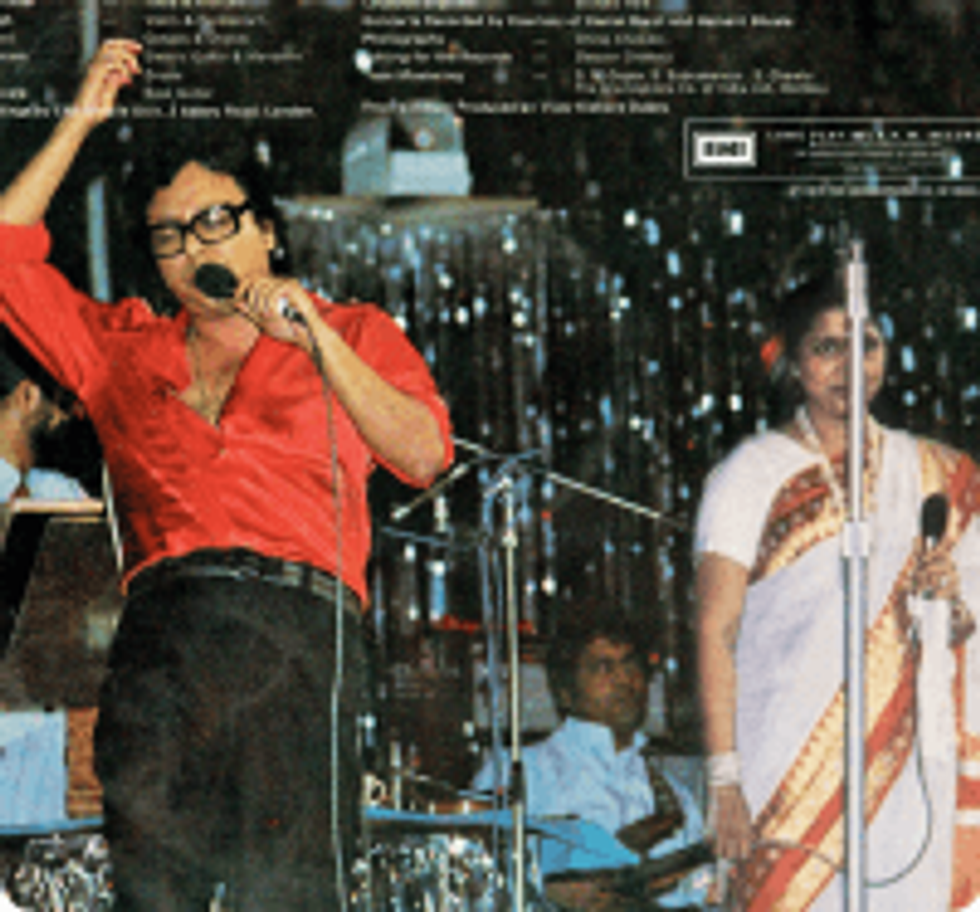
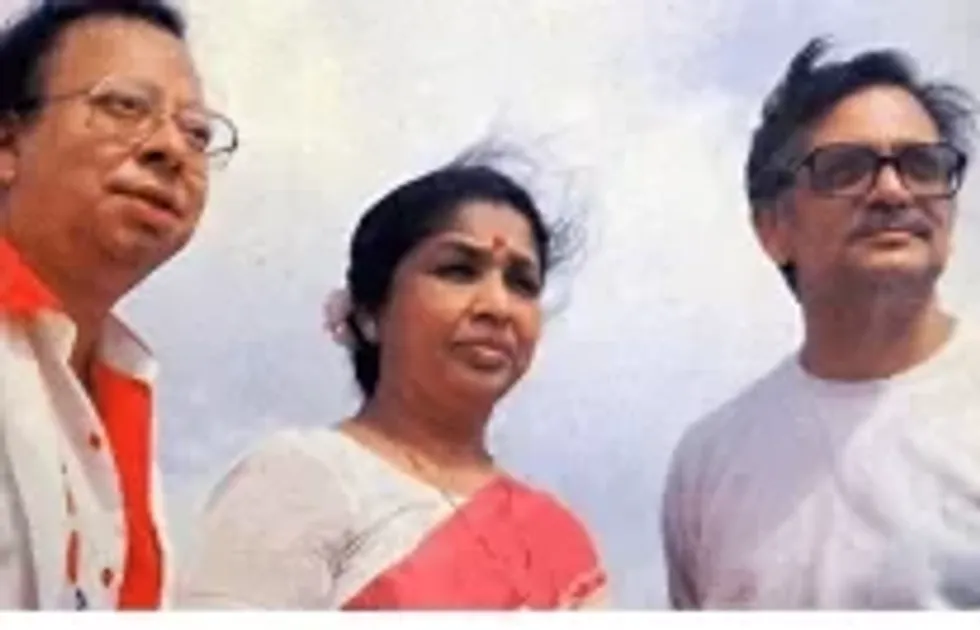
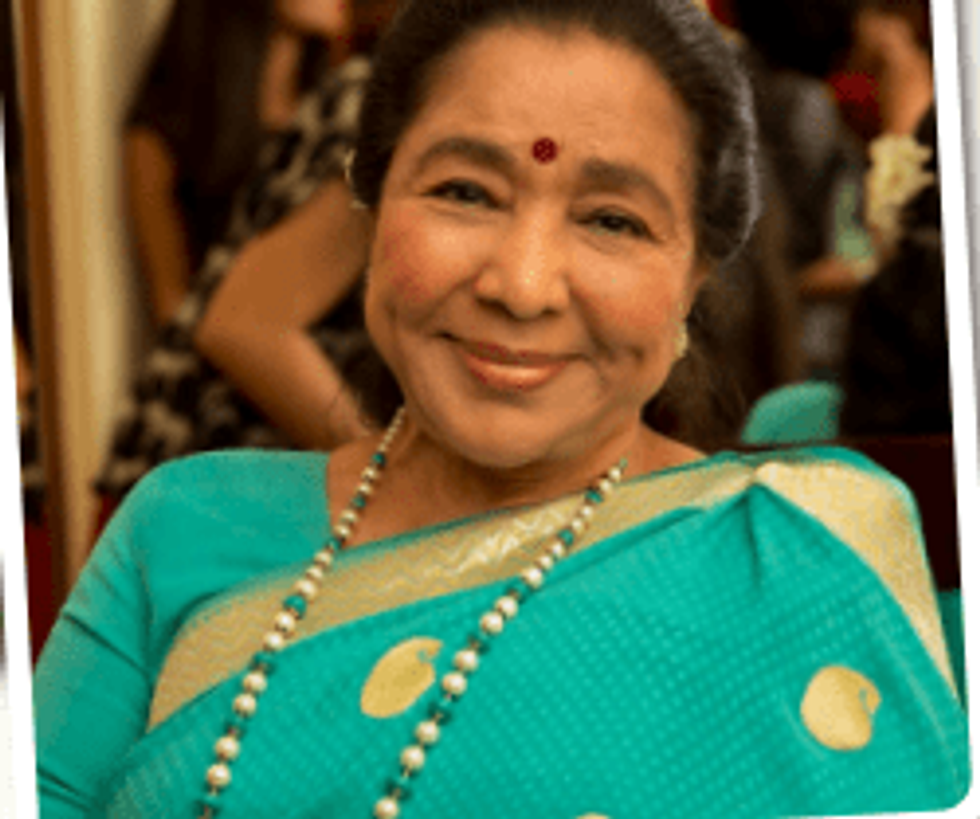
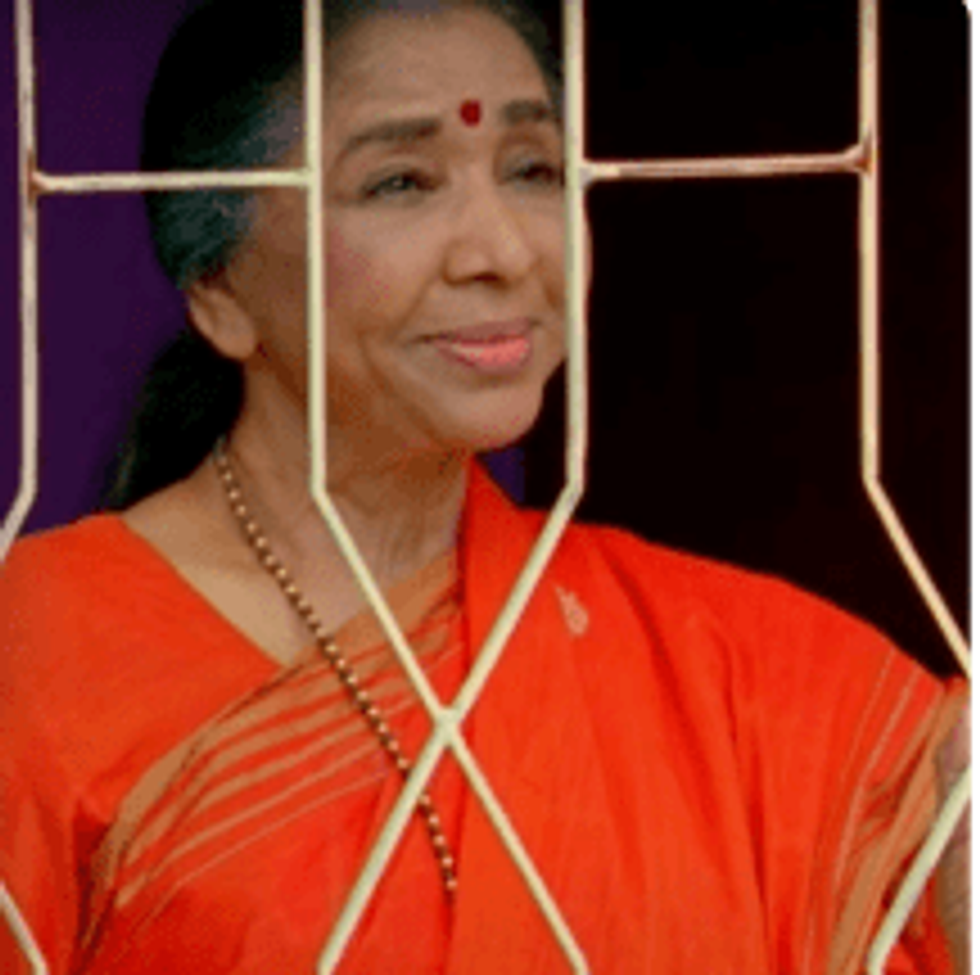
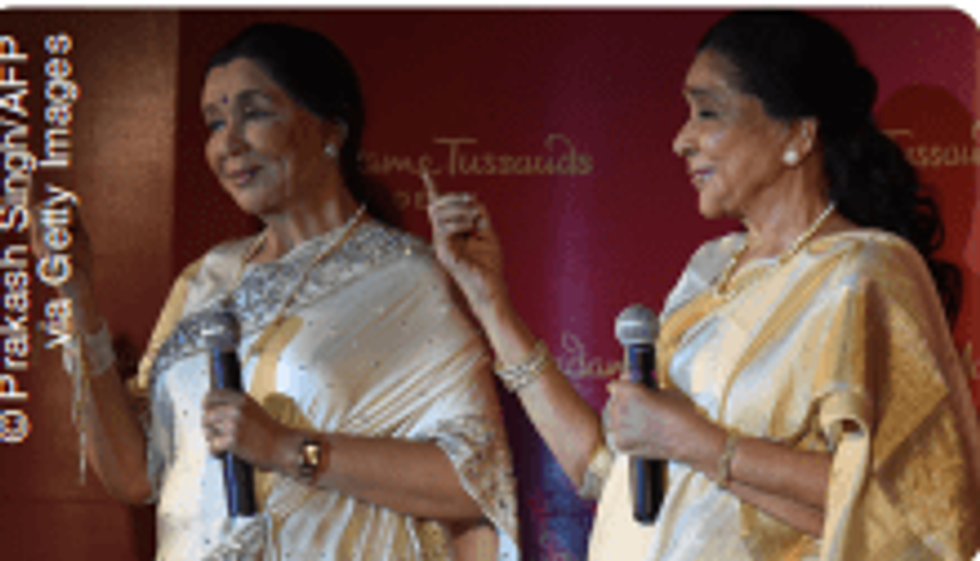
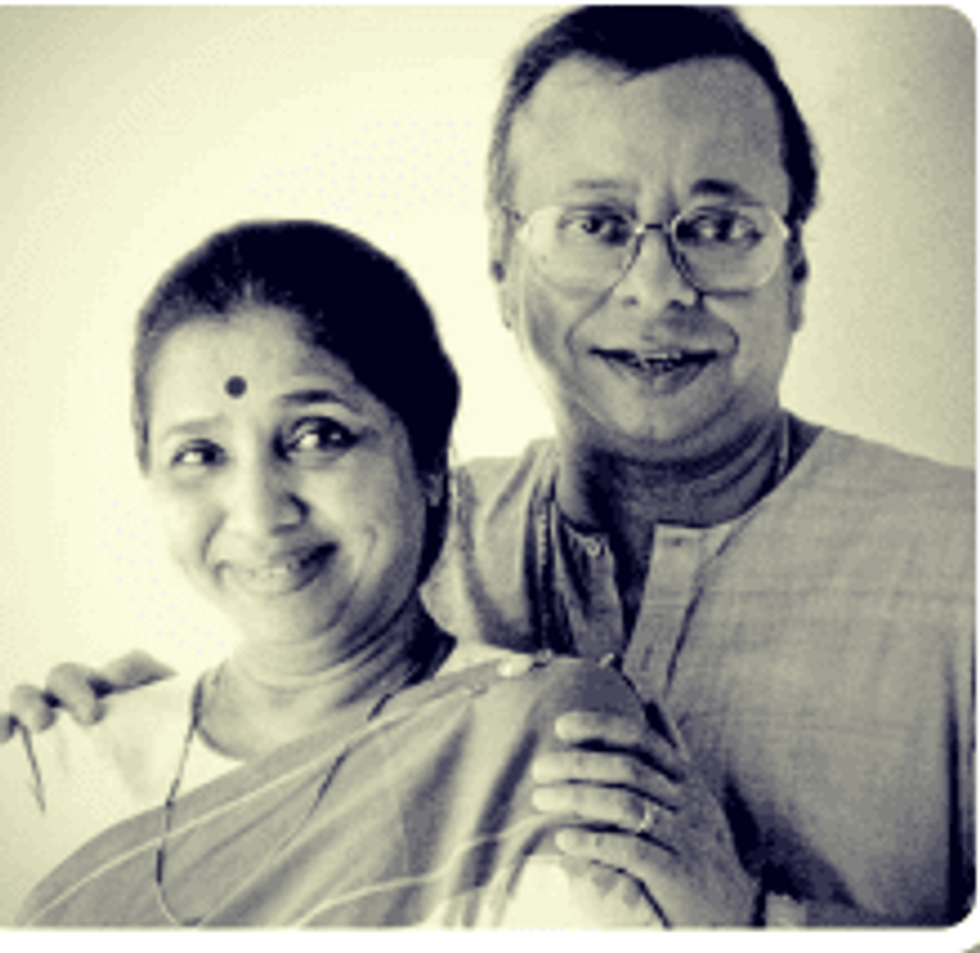





 Naeli and the secret song
Naeli and the secret song








 Jamie Lloyd’s Evita with Rachel Zegler set for Broadway after London triumphInstagram/
Jamie Lloyd’s Evita with Rachel Zegler set for Broadway after London triumphInstagram/
 A compelling premise, layered and unpredictable charactersAMG
A compelling premise, layered and unpredictable charactersAMG Anyone who enjoys a gripping story with a diverse cast and unexpected twistsHarperFiction
Anyone who enjoys a gripping story with a diverse cast and unexpected twistsHarperFiction
 The Story Teller by Ley Roberts
The Story Teller by Ley Roberts Summer Exhibition coordinator Farshid Moussavi, with Royal Academy director of exhibitions Andrea Tarsia in the background
Summer Exhibition coordinator Farshid Moussavi, with Royal Academy director of exhibitions Andrea Tarsia in the background An installation by Ryan Gander
An installation by Ryan Gander A sectional model of DY Patil University Centre of Excellence, Mumbai, by Spencer de Grey
A sectional model of DY Patil University Centre of Excellence, Mumbai, by Spencer de Grey Rituals and Identity and Theatre of Resistance by Arinjoy Sen
Rituals and Identity and Theatre of Resistance by Arinjoy Sen
 An explosive new play that fuses biting satire, history and heartfelt storytellingPleasance
An explosive new play that fuses biting satire, history and heartfelt storytellingPleasance